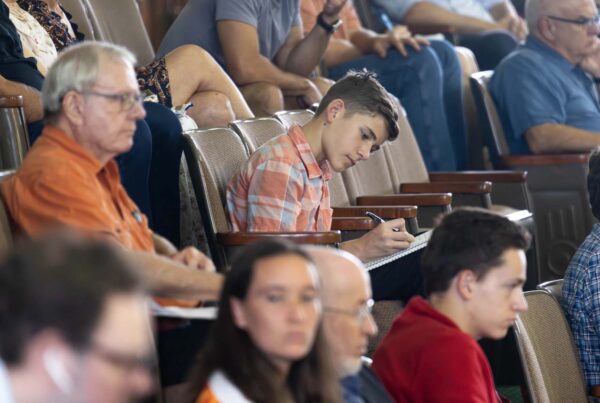On Friday, teachers at the combined campus of Cage Elementary and Chrysalis Middle schools in Houston’s east end were called to a mandatory after-school meeting.
Both schools face sweeping reforms under the New Education System (NES) implemented by state-appointed superintendent Mike Miles.
In the meeting, Central Division superintendent Luz Martinez told teachers they had failed to implement the reforms with full fidelity and should expect new “support” staffers in their classrooms “all the time.”
“I understand that since we started this school year, there has been some turmoil,” Martinez told them. “I understand that it may not have been what you would have expected. But it is what it is, and we are NES-aligned. That is not changing. We are not going back. We are not compromising. We will be NES-aligned.”
“NES-aligned” means that the principal chose to participate in the reform program this year. There are 57 NES-aligned schools this year, in addition to the 28 schools that were forced to adopt the changes. Some of the campuses, like Cage and Chrysalis, were swept up by the reforms even though the Texas Education Agency awarded them an A-rating in the state accountability system.
The NES model includes tightly scripted lessons, student-engagement strategies every four minutes and timed quizzes at the end of each class. Staffers were told to affirm their commitment to the reforms or to request a transfer by the end of the weekend. Two teachers who asked questions during the meeting were told they will be fired for alleged “insubordination.”
The meeting came as the state-appointed leader of Houston ISD emphasized the message that teaching in a “high-performance culture” is “a choice.” The subtext: the reforms will proceed, and staffers who don’t like it should leave.
Parents protest — ‘We don’t want this anymore’
Monday morning, about thirty community members protested outside Cage and Chrysalis.
Before heading to class, seventh-grader Jayden Peña and her brother, Jacob, said school this year is “boring.”
“It feels like they’re reading from scripts whenever they’re teaching us, and it’s hard for them because they can’t even teach the way they want to teach,” Jayden said.
“All we’ve been doing is just writing on paper — paperwork and whiteboards,” Jacob said, adding that it’s hard to focus because his class has more than 30 students in it and administrators continually walk through the rooms.
“Almost every day we have some people just watching, and then they’ll leave after a little bit,” Jayden said.
Their mom, Myra Lemus, said she doesn’t feel heard by the new state-appointed leadership.
“If we have to protest every day, let’s protest every day,” Lemus said. “We don’t want this anymore.”
Houston ISD hasn’t commented on the Cage and Chrysalis situation. But a week before that meeting, division superintendent Luz Martinez sat for interviews with reporters.
At the time, she said most teachers in the reformed schools were handling the changes well.
“No matter what you do, you’re always gonna have people who go with it and people who don’t,” she said, adding that administrators were working to give “passion and purpose” to the “naysayers or the nonbelievers.”
In the eyes of the administration, these changes are critical to close the achievement gap between affluent and working-class communities.
“Particularly with our Black and brown students,” Martinez said. “All students should have the ability to receive the highest quality education possible, and it is our moral imperative as educators to ensure that they get it.”















